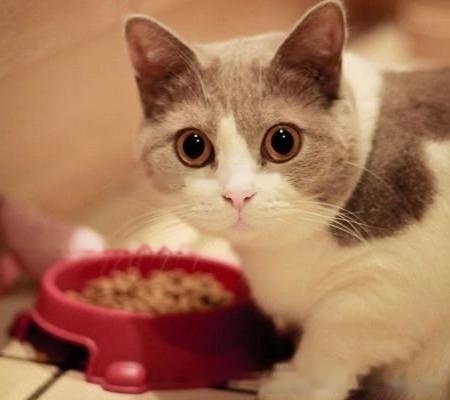Parents who raise cats, especially novice parents, should pay great attention to their cats' diet. There are also many things to pay attention to when feeding cats. If conditions permit, it is best to choose safe and healthy natural food for cat food. The raw materials of ordinary commercial food, especially domestic low-end cat food, are very poor, and long-term consumption will seriously affect the health of cats.
Cats are carnivores, and cat food can only be said to be nutritious biscuits for cats. Cats who use cat food for a long time are generally in a semi-dehydrated state. Occasional meat snacks, canned, boiled chicken breasts are very beneficial to cats, and some nutritional creams and calcium tablets can also be mixed appropriately. Cereal starchy food cats only feel full after eating, which is difficult to digest and absorb, so they should also be fed less.

1. The cat's food tray should be fixed and cannot be replaced casually. Cats are sensitive to changing plates and sometimes refuse to eat because they are changed. Keep the pan clean. Cats should be fed fresh or cooked. If possible, try to prepare a slightly higher bowl, which can effectively protect the cat's cervical vertebrae to prevent cervical vertebrae diseases caused by long-term eating with their heads down when they are old.
2. Feeding should be done regularly and the environment should be quiet and there is no odor around.
3. Prevent cats from catching food with their claws or taking the food out of the food tray.
4. Cats like warm food. Cold food and cold food not only affect the cat's appetite, but also easily cause digestive disorders.
5. Although cats don't drink much water, they must have enough clean drinking water. Insist on changing the water every day. It is best to separate the water bowl from the rice bowl, because cats don't like to smell food when they drink water.
6. Always keep an eye on the cat's appetite. There are many reasons that affect the cat's appetite, mainly including feed, environment and disease. If the cat's food is single, stale, or the smell, concentration, taste of the food is not appetizing, etc., the cat will refuse to eat. In addition, bright light, loud noise, the presence of strangers or other animals can affect the cat's appetite. If these two factors are improved, and the cat's appetite still does not improve, it may be that the cat is sick, and the veterinarian should be consulted in time.
![[Dog Training 5] The training method of pet dog dining etiquette](/static/img/12192/12192_1.jpg)




